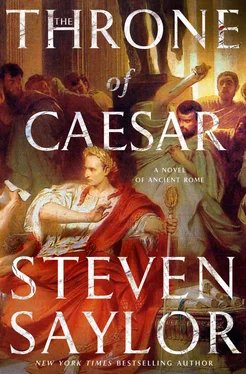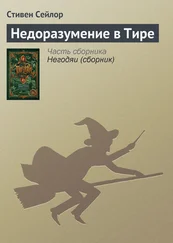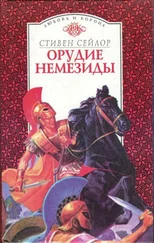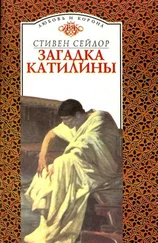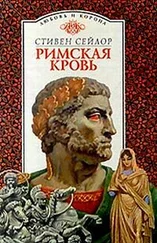Стивен Сейлор - The Throne of Caesar
Здесь есть возможность читать онлайн «Стивен Сейлор - The Throne of Caesar» весь текст электронной книги совершенно бесплатно (целиком полную версию без сокращений). В некоторых случаях можно слушать аудио, скачать через торрент в формате fb2 и присутствует краткое содержание. Год выпуска: 2018, Издательство: St. Martin's Press, Жанр: Исторический детектив, на английском языке. Описание произведения, (предисловие) а так же отзывы посетителей доступны на портале библиотеки ЛибКат.
- Название:The Throne of Caesar
- Автор:
- Издательство:St. Martin's Press
- Жанр:
- Год:2018
- ISBN:нет данных
- Рейтинг книги:5 / 5. Голосов: 1
-
Избранное:Добавить в избранное
- Отзывы:
-
Ваша оценка:
- 100
- 1
- 2
- 3
- 4
- 5
The Throne of Caesar: краткое содержание, описание и аннотация
Предлагаем к чтению аннотацию, описание, краткое содержание или предисловие (зависит от того, что написал сам автор книги «The Throne of Caesar»). Если вы не нашли необходимую информацию о книге — напишите в комментариях, мы постараемся отыскать её.
The Throne of Caesar — читать онлайн бесплатно полную книгу (весь текст) целиком
Ниже представлен текст книги, разбитый по страницам. Система сохранения места последней прочитанной страницы, позволяет с удобством читать онлайн бесплатно книгу «The Throne of Caesar», без необходимости каждый раз заново искать на чём Вы остановились. Поставьте закладку, и сможете в любой момент перейти на страницу, на которой закончили чтение.
Интервал:
Закладка:
“This is to take nothing away from you, Meto,” Caesar said. “You helped with the initial draft, which shaped the basic arguments, but the final version required a poet’s touch. And not just any poet, but our own dear Cinna, the greatest poet alive. Cinna, you blush! Or is that the braziers’ flames reflected on your cheeks?” Here Caesar delivered one of those laughs that set my teeth on edge. “I say it without hesitation, you know—that you are our greatest poet. A month ago, I might not have done so. But a month ago, I had not yet read your Orpheus and Pentheus. ”
“The great work is at long last finished, then?” asked Lepidus.
“It is,” said Caesar. “And I was honored to be the first reader.”
“And so far, Caesar, you are the only reader,” said Cinna, whose cheeks were still flushed.
“And what is the judgment of Caesar?” asked Lepidus.
“My opinion I will gladly share with you, but you can judge for yourselves—because Cinna has agreed to recite the poem in its entirety this evening.”
“Hear, hear!” said Lepidus, clapping his hands. Decimus did likewise, though it was hard to imagine him a connoisseur of poetry, and so did Meto, though less enthusiastically. I think Meto was a little jealous of Cinna. Over the years I have observed that every writer seems to be jealous of all other writers.
“The very conception of the poem is brilliant,” said Caesar. “One wonders why no poet thought to do it before—to recount in a single poem the deaths of both Orpheus and Pentheus, so similar in some respects, so different in others. I think you may have created a genre, Cinna, for surely others will follow your example, historians as well as poets. Imagine a series of life stories told in parallel, to compare and contrast the careers and fortunes of great men.”
“I foresee a poem combining Alexander and Caesar,” said Lepidus, flashing a knowing look at Cinna.
“Perhaps,” said Cinna. “If I am so fortunate as to follow in Alexander’s footsteps, side by side with Caesar, I pray the Muse will grant me the inspiration and longevity to express the wonder and the glory of both expeditions, then and now—perhaps in parallel, as you suggest, Lepidus.”
“I like that bit about longevity,” quipped Meto. “The Zmyrna did take you almost ten years to write. And so, I gather, did the Orpheus and Pentheus. ”
“But surely it won’t take ten years for Caesar to conquer the East,” said Lepidus. “You must learn to write faster, Cinna. Faster!”
“No, no,” said Caesar. “One cannot hurry perfection. Let Cinna take whatever time he needs to create his masterpieces. The world will be forever grateful.”
“You flatter me, Caesar,” said Cinna.
“No, I do not!” Caesar sounded almost angry. His eyes glittered with manic fire. “Caesar flatters no one. Caesar has no need to. I surround myself with men of supreme ability. If they disappoint, I discard them. If they match or exceed my expectations, I give reward and encouragement—but never flattery. So when I speak highly of your poetry, Cinna, I mean every word I say. If anything, I understate my high regard. As an orator I’ve trained myself to avoid the appearance of hyperbole. So let me be clear and speak without equivocation.” He drained his wine cup, handed it to a slave, and gestured to another, who produced a scroll. The ornate dowels were carved from ivory with inlays of carnelian and caps of gold. “When you gave me this copy of the Orpheus and Pentheus, you told me it is the only copy in existence. I felt a grave responsibility to have in my keeping a thing so precious and rare. I began to read it as soon as I had a spare moment, thinking to read only a little and then get back to work. The moment grew to hours. I couldn’t put it down. Nor could Meto pry it from my hands. ”
“It’s true,” said Meto. “I had to turn away one visitor after another.”
“From the very first words, I felt a curious premonition, a stirring of something like … fear.”
“You, Caesar? Fearful?” said Cinna.
“Yes. So dreadful a thing it is to explore the inmost secrets of such stories—think of the Zmyrna and the secrets it reveals. Nor did this feeling diminish as I proceeded. It deepened into a sort of … terror … almost a horror … of what might come next. Fierce, fiery, incandescent—a firestorm of words ablaze with dazzling images, words that conjure utter ecstasy and utmost despair. I trembled, as one must in the presence of such a singular masterpiece. There is nothing in the whole length and breadth of Latin literature with which to compare it, not even the Zmyrna. Whatever great works you’ve given us before, Cinna, the Orpheus and Pentheus outshines them with a furious brilliance.”
There followed a long silence. Caesar’s listeners sat stunned and speechless. I looked from face to face. Most stupefied of all was Cinna. He had blushed before but now looked ashen. His hand trembled so violently that he had to put down his silver cup. I thought he might be ill. Then he put his face in his hands and began to weep, as men do when overwhelmed with joy.
XXVIII
By custom or instinct, one does not closely observe other men when they bathe, or eat, or weep—especially when they weep. Taking my eyes from Cinna, I gazed at the nearby statues in the garden. Situated atop a marble pedestal not far from the dining room, there happened to be a rather magnificent statue of Orpheus.
The handsome youth was depicted, as usual, wearing a Phrygian cap and holding a lyre, surrounded by numerous animals. The son of the Muse Calliope and a mortal king, Orpheus had been revered for centuries as the greatest musician who ever lived, able with his songs not only to charm birds, beasts, and fish, but also to inspire trees and rocks to dance, and rivers to change their course. When his beloved Eurydice died from the bite of a viper, Orpheus descended to the realm of Pluto, using his music to charm the watchdog Cerberus and the ferryman Charon. Even the god of the dead was susceptible. After hearing Orpheus sing, Pluto agreed to relinquish Eurydice. But there was a condition: Orpheus, ascending from the Underworld, must not look at his beloved until both of them emerged in the world of the living. Orpheus ascended, step by step, playing his lyre so that Eurydice could follow, but she uttered no response to his song. He listened for her footsteps but could not hear them. In an agony of doubt, he dared to look back. Their eyes made contact, they reached for each other—and then Eurydice tumbled back, back, back to the Underworld, never to be seen by Orpheus again.
That was the most famous story about Orpheus, but there were many more. His songs, handed down through countless generations, were now known to only a handful of initiates. These special acolytes, keepers of the Orphic Mysteries, were said to possess magical powers.
As I was soon to learn, Cinna’s poem dealt only in passing with the life of Orpheus. The singer’s gory death was its chief concern.
Of Pentheus, the other subject of Cinna’s poem, there was no image in Lepidus’s garden—indeed, I had very seldom seen Pentheus depicted by statues or paintings, only by actors on the stage. (How actors love to play a doomed man driven mad!) But there was, not far from the Orpheus—facing it, in fact—a statue of Bacchus, the god whom Pentheus so gravely offended that he was punished with a fate almost too horrible to imagine—a death in many ways similar to that of Orpheus.
The statue depicted Bacchus as a voluptuous youth with a handsome face that betrayed no emotion whatsoever. His brow was wreathed with ivy and his shoulders clothed with a mantle of grapevines heavy with fruit. Wine—or more precisely the wild intoxication that comes from wine—was a gift to mankind of Bacchus, who inspires not only drunkenness but all manner of madness and frenzy. For centuries, women have been known to worship Bacchus in secret. No man knows the exact nature of these rites, which are said to turn sane women into Maenads, mad creatures clothed in animal skins who run headlong through the woods playing shrill music, singing ululating songs in praise of Bacchus, attacking and annihilating any living creature they encounter. Maenads are the stuff of nightmares—for men, at least. The word is Greek for “raving ones.” In Latin we call then Bacchantes, after Bacchus, and so they were often referred to in Cinna’s poem.
Читать дальшеИнтервал:
Закладка:
Похожие книги на «The Throne of Caesar»
Представляем Вашему вниманию похожие книги на «The Throne of Caesar» списком для выбора. Мы отобрали схожую по названию и смыслу литературу в надежде предоставить читателям больше вариантов отыскать новые, интересные, ещё непрочитанные произведения.
Обсуждение, отзывы о книге «The Throne of Caesar» и просто собственные мнения читателей. Оставьте ваши комментарии, напишите, что Вы думаете о произведении, его смысле или главных героях. Укажите что конкретно понравилось, а что нет, и почему Вы так считаете.
